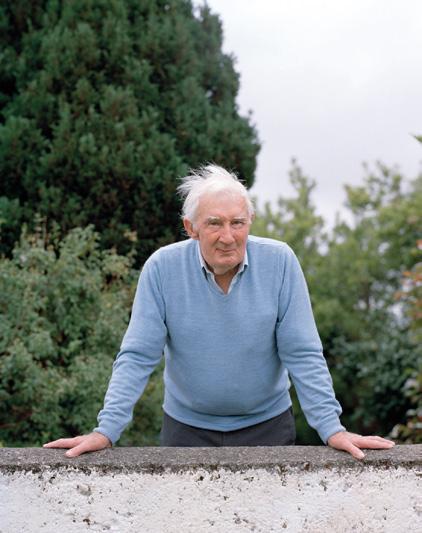
19 minute read
Creative writing
Creative Writing Close-up on film-maker Helen FlanaganEileen Casey profiles a multi-talented director and scriptwriter
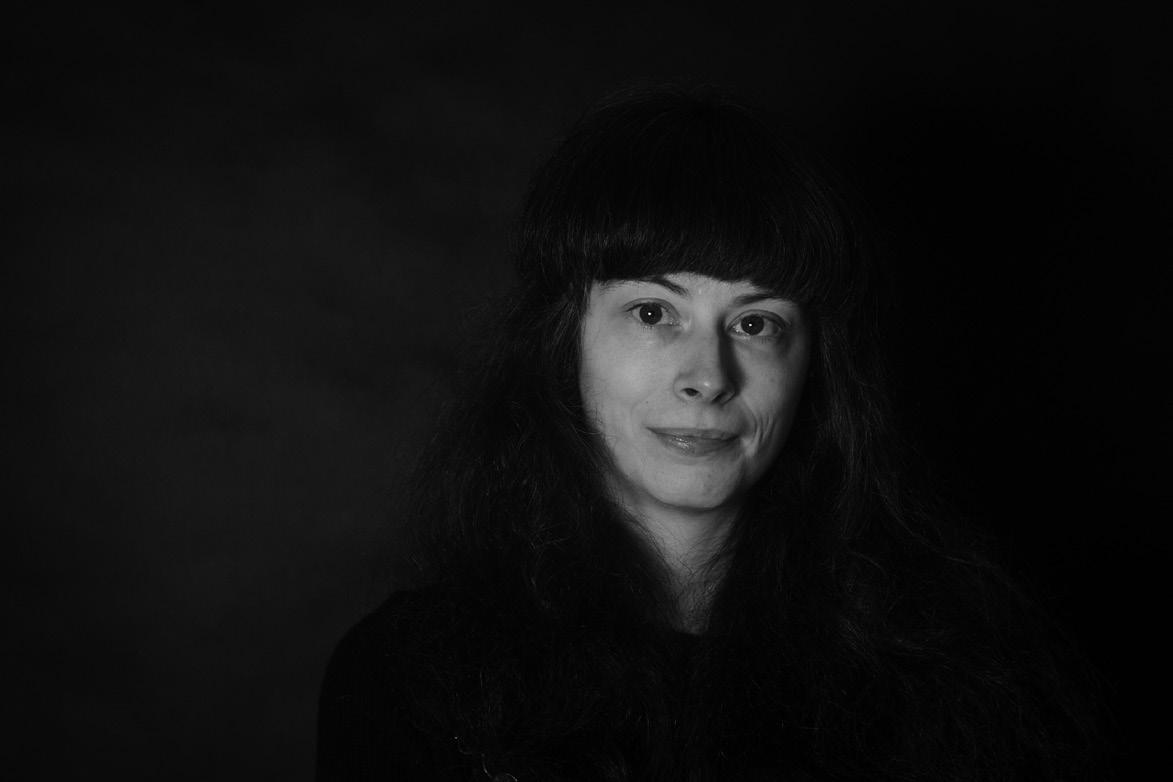
Helen Flanagan
Having completed an enjoyable, informative and challenging screenwriting series with filmmaker Helen Flanagan, I felt readers would like to know more about this vibrant, intelligent maker and script writer. Especially now, as film watching continues to form such a major part of our lockdown routine. Where to begin then but the beginning! And what a beginning it was. At an early age, Flanagan learnt that life can and will give lemons. In her case, however, it happened to be Munchies! Eating them is very much part of an early memory entwined with her first time ever cinema experience, a momentous occasion by any standard but in her case, traumatic. A re-release of Snow White and the Seven Dwarves, instead of triggering awed delight, had the opposite effect. This much loved Disney favourite brought about such a terrifying response from child Helen, resulting in tears and screams; her mother had no option but to take her daughter home, placating her en route with a big packet of chocolate treats. An early lesson then in the light and shade, sweet and sour of drama. A couple of decades later, the child who exchanged tantrums for chocolate, has become an established, much respected, vibrant voice; not only in an Irish context but a global one. Right from the get go too. One of her early short films, made for Film Offaly called The Debt, screened in around 50 festivals around the world and toured as part of a couple of best of festival programmes. It was even dubbed in Japanese and shown across Japan, an achievement she’s rightly proud of. when the stars align (literally); an already good script elevates to excellence. Who hasn’t enjoyed a film not just for the story telling quality but for the way the main characters project that story? After all, although cinema is a collective activity, viewing the screen in a darkened auditorium delivers a very personal one to one experience. A true paradox, collective sensibilities distilled into the private. On the question of matching character to plot, Flanagan agrees, ‘Yes, casting is so important. I think you have to look for an actor who brings a part of their own humanity to a character. It can be really hard to find the right actor and for everyone to be available at the right time.’ This is undoubtedly
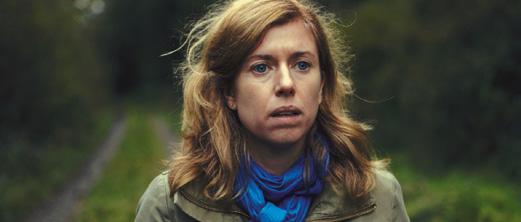
The Drive - 2015
Urgent COVID Appeal. Help Our Frontline Heroes.


Our frontline workers have been on call all the way throughout Covid-19. They have gone above and beyond what has been asked of them. Our essential services have remained operational throughout even the most severe lockdown, treating thousands of sick and injured animals.

We have never seen such a demand for the vital work that we do. The charity’s resources are now stretched to the very limit. We are trying as best we can to keep our services open for all the sick pets who need us.
That is why we need you. Help us keep our essential veterinary services operational and save the lives of countless pets.
Thousands of Pets Need Our Help, So We need Yours.
The Irish Blue Cross is facing a huge funding shortfall, as our major fundraising drives have been cancelled or badly affected by Covid-19. We still give the very best of care to thousands of pets. And our teams are doing this under the strictest of pandemic safety protocols. We expect to be busier still as the economic reality of Covid-19 hits home, and more and more families find the need for our services.
What keeps us going is knowing that we help pets and owners who need our low-cost care. They might not otherwise be able to afford veterinary care for their beloved pets.
What also keeps us going is you. Your support means the world to us and the pets we help.
Pets are close to your heart. And ours. Help Support our vital work.
Pets are amazing. They offer companionship, encourage exercise, promote responsibility and help with mental health issues. A lot of them are also very cute.
The Irish Blue Cross is here for the pets that are there for you. Since 1945 we have been offering low cost veterinary support to the people who need it most. Today we operate a network of ten mobile veterinary clinics across Dublin, as well as our clinic in Inchicore.
Each year we get thousands of visits to our clinics from families who would not otherwise be able to afford veterinary care. We do not turn them away, because our mission is to help everyone who needs our services.
Some of our services: We promote responsible pet ownership through neutering, microchipping, and vaccination programs. We also provide free talks to schools and youth groups on request. Our horse ambulance service is on standby at race meetings and big equestrian events in Ireland.

We appreciate your donation, however much you can give.
If you decide to go online, you can make a once-off, or a regular monthly donation securely at www.bluecross.ie/donate and you can read more about the pets we help! You can also call one of our team on 01-416 3032 to make donation over the phone.
“Working on the front line as part of the Irish Blue Cross Veterinary team, I have experienced first-hand the pressures of COVID-19 on everyone; from our staff, to our patients and their owners. It is at times like this that we need your support more than ever."
Veterinary Nurse Ellen, with Minnie
15A Goldenbridge Industrial Estate, Inchicore, Dublin 8 T:+353 1 4163032 E: fundraising@bluecross.ie www.bluecross.ie
An Cat - 2014
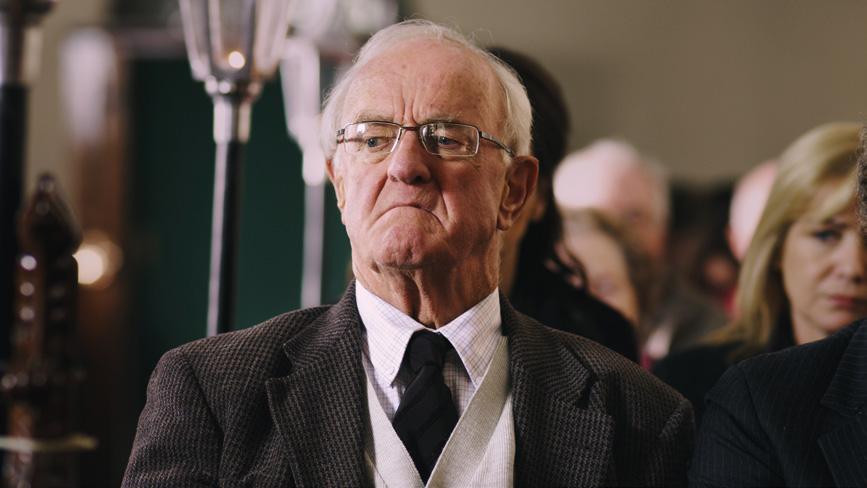
a challenge. It would be unthinkable after all to imagine anyone else but Humphrey Bogart and Ingrid Bergman in that timeless classic Casablanca (1942) or who but Robert de Niro could play Travis Bickle in Martin Scorsese’s Taxi Driver (1976), a personal favourite of my own. ‘If you have the resources available, having a really good casting director or a producer with an eye for casting is really helpful.’ For Flanagan, whose credits include acclaimed short films, ‘having a good script that gives the actors characters with real depth and complexity is key’. She greatly admires a hit feature from last year, Parasite in terms of casting, acting and an ‘absolutely incredible script’.
So where did achieving her filmmaking goals start for this effervescent young woman? Her bio proclaims her an artist and writer, her practice starting out in narrative filmmaking and screenwriting. ‘I completed my BA in film and TV production and then my masters in screenwriting in the National Film School at IADT’. Her career, she explains, has branched into directing and writing, ‘mostly in development on television documentaries and series.’ Because of her talent and skilful crafting of material, she has written and directed a number of short films and children’s television documentaries and series which were all ‘very luckily funded by various film commissions and broadcasters.’
Lockdown has invariably given the nation time on their hands. For film buffs, it’s an ongoing feast. Netflix is booming. Now TV the same. For those lucky enough to have Sony Movie Classic Channel, the golden oldies are there to revisit. Great cinema like Fred Zinnemann’s A Man for All Seasons (1973) starring Academy Award Winner Paul Schofield, is just one of the many quality productions available. Directors, in the past, seemed to rule Hollywood. A film’s success or failure was attached to directorial style. There’s no denying that films tagged with illustrious names such as Tarantino, Scorsese, The Coen Brothers, among others, will always have a certain cache. Names which still resonate from the golden days of Hollywood are those such as Cecil B. deMille and Mack Sennett. Such directorial authority is not always a good thing especially around ‘hierarchy and power’ Flanagan maintains. ‘ I don’t actually have any one director I would hold up on a pedestal but there are certainly some filmmakers whose work I think are interesting.’ There’s no doubting the fact that there are plenty of aspects of the craft and storytelling form that ‘are really fundamental aspects of filmmaking now.’ Asked to name directors whose work she admires, she cites some interesting choices; ‘Asghar Farhadi, an Iranian filmmaker who made A Separation and The Salesman. His films are about moral dilemmas and contradictions arising from social class, gender and religion.’ What about women directors? Of which there seems to be a dearth, especially when it comes to handing out Oscar nominations. Jennifer Kent (The Babadook, 2014) is a name that springs easily to mind; ‘She makes really tight, authored films that explore the legacy of trauma and violence and she articulates that work through a feminist perspective.’ Because we’ve explored, to some extent, good films and filmmakers I just have to know if she has any worst film choices. ‘I kind of really enjoy watching a bad film,” she responds, surprising me. “I watched all of the fast and furious series over lockdown...I think the worst films though are films that aren’t operating with any awareness for the message they are putting out into the world or the wider implications of that message’.
There’s that word again...’lockdown’. Alright, we enjoy watching films and they help to pass the time but we miss what’s lost too, however temporarily. I ask what she misses most of all at the moment. Not surprising that in a very social, bubbly individual interested in people, should include ‘making shows, nights out...talking and chatting and cooking and eating with people, baking with friends...all things of the past for now. And I enjoy bumping into people in the studio and having spontaneous chats’. Which brings me to ask, where this hub of vivid conversation is. ‘A4Sounds, a Dublin Studio I’m a member of. It’s full of the best people.’
While Dublin is a big part of Flanagan’s life, she has very happy memories of growing up in County Louth. Her mum and dad live in Ardee, halfway between Dundalk and Drogheda. ‘There’s the two of us, myself and my brother and I’m the older sibling.”’ Clearly, background influences who we are today so I have to ask where the creativity element comes from. ‘Dad and mum are great gardeners and have an amazing greenhouse, a few really nice apple and plum trees and a really nice raspberry patch that produces great jam every year.’ When you think about it, gardening is very similar to any creative process, clearing the soil, planting, nurturing and harvesting. ‘Dad grows a load of pumpkins every year so I’ve got some seeds off him and am hoping to replicate his crop this year myself. My nana is also living in Ardee and she just turned 90 recently and looks fabulous!’.
Having spoken about creative gardening, I have to ask what her own writing rituals are; ‘I don’t really have any set rituals around writing (despite ritual being an important aspect of my work). I think I used to choke myself up by overthinking, not ‘Now I realise that actually just writing anything, getting words on the page is the important thing.’ Okay. Writing
The Trap- 2018

on a regular basis is definitely a good idea but bringing it to the point of production on a film set must involve a lot of drafting and rewriting. “I like to work through an idea through process, by writing and seeing what comes out. I navigate blocks or walls with free writing.’ Because Flanagan is also a facilitator in creative writing and storytelling classes, she has ‘a lovely opportunity to write and devise work through process and to work collaboratively also.’ As all writers know however, motivation isn’t always as easily available as talent. I heard a great quote recently from a fellow mentee on the script writing course I mentioned earlier (shout out to Offaly Arts for providing such a valuable opportunity). He said; ‘Passion may fail you but discipline never will’. How very true. Or as my own dear mother often said ‘Hell is paved with good intentions’. So of course, the subject of being driven is raised, the proverbial stinging fly that all writers need to either start and/or finish a piece of work. ‘Motivation can be really hard so I like to put myself in situations that leave me no choice but to write something, like planning a show and then absolutely needing to write something for it, or having a deadline of some kind to work towards.’ She realises also that she is so lucky to have studio space in Dublin, having moved down the country last year. “Space just isn’t an option if you are renting so I have space in the place I’m living in now”.
A reader of gothic fiction and classic ghost stories (she loves Shirley Jackson, Du Maurier, The Brontes, among others) I ask her how she would define good, solid writing, whether she’s fascinated by anything in particular about human nature? In other words, what brings her to the blank page? ‘I really love writing where moral dilemmas and conflicts play out and between people who have relationships to each other. I think one of the things that I like about screenwriting is that it’s a form that is so accessible and direct.’ I ask if this is a collaboration of sorts between writer and audience? ‘A really good piece of screenwriting is one that is having a complex conversation with the audience, but at the same time communicating that complexity simply, with clarity and focus and intent.’ John McGahern put it so well when he once said that a woman combing her hair or a man eating an egg were every bit as important as big events. Which is why Flanagan admires Kenneth Lonergan’s films, ‘he often uses the small details or incidents to reveal character’. About five years ago, Flanagan started a collaborative, social arts practice with poet and performer Niamh Beirne. ‘We make very immediate, participatory DIY theatre as ‘social space’ in the Mummer’s tradition. I love this work. We use ritual, magic, games and storytelling to invite the audience to become part of a show and to give people a platform to share stories and experiences. We also make DIY videos and audio work. I’m lucky now to work in arts education. I facilitate and teach people and adults creative storytelling, writing and screenwriting and filmmaking and I develop arts projects for schools.’
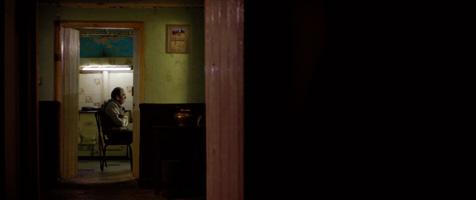
When I ask if she has a philosophy about life she says; ‘Often the hands will solve a mystery that the intellect has struggled with in vain.’ Which bears out Paul Klee’s ‘take a line or a walk’ maxim. Going forward, Flanagan, while finding the past year a real challenge, is starting to ‘re-assess and articulate what’s important”. She is thankful for the return of work opportunities that just weren’t there in the first part of last year. I can’t not ask, having heard about the Munchies anecdote, if she is an advocate of eating in the cinema. Is popcorn crunching a bugbear? Should noisy crisp bag explosions be banned? On reflection she says; “I have to say that by and large I don’t mind the eating, within reason of course.’ She’s even been known to bring cake into a screening herself! No doubt we’ll be hearing (and seeing) a lot more from this exciting filmmaker.
Din- 2016
Lifetime Loans – an option worth considering
Our retirement years can be a time to do the things that perhaps were put on hold or would make our later years more comfortable, like home improvements. If you don’t have the finance to do these things, aren’t eligible for standard loans, don’t want to borrow from your children or sell the place you call home, an alternative worth considering is a Lifetime Loan.
Lifetime Loans are not for everybody but the recently launched Spry Finance has been set up to provide information on the product and expert guidance on whether or not a Lifetime Loan is a suitable solution in your particular circumstances. Spry Finance is the retail division of the Seniors Money group and the loan itself would be provided by Seniors Money.
What is a Lifetime Loan?
Very comprehensive information is provided at www.spryfinance.ie but, in a nutshell, a Lifetime Loan is a mortgage loan secured against your home and designed to last the rest of your life. There are no regular repayments to be made and the loan only becomes repayable after you pass away, cease to reside in your home, or sell it.

Lifetime Loans are available to residents of the Republic of Ireland aged 60 or over who own their own home. If there are two of you, the younger person must be aged 60 or over. Your home must be of standard construction and worth a certain minimum amount. What can a Lifetime Loan be used for?
Lifetime Loans can be used as you wish, and according to Spry Finance most people use their Lifetime Loan for more than one purpose. Typical uses include home improvements, purchases for the home, paying off a mortgage balance to free up monthly cash flow, and reasonable lifestyle expenses.
Spry Finance provided the following examples of real loans that have been taken out in recent months (names have been withheld to protect client privacy):
Mr. & Mrs. R are a married couple in their sixties with a house valued at €1,000,000. They borrowed €150,000 to provide a helping hand to their son to get on the property ladder as a form of ‘early inheritance’. This was openly discussed with the family and all siblings were included in the decision and supportive of it.
Mr. T is a single man in his late sixties with no immediate family, a house worth €310,000 but in need of repair, no savings and a small debt he wished to clear. He borrowed €60,000 to rewire the house, replace the windows and update the kitchen and bathroom. He also repaid the small debt, which freed up monthly income going forward. Mr. & Mrs. P are a married couple in their early seventies with a house worth €750,000. They had previous positive experience of a Lifetime Loan, having taken one out with Seniors Money which they went on to repay several years ago. They returned for a new loan of €100,000, largely to refinance a property-related debt with the balance used for a combination of purposes including home improvements.
Mr. & Mrs. Mc are a married couple in their sixties with a house worth €300,000. They are in the process of borrowing €65,000 to carry out home improvements to make their house more efficient.
Reinvesting the loan in the home, via home improvements, is the most popular use but other uses that Spry Finance clients put their Lifetime Loans to include refinancing interest-only mortgages on their homes or holiday homes, assisting family members with medical or other expenses, and small levels of lifestyle expenditure such as replacing their car or once-off foreign travel to see grandchildren in the likes of Australia or America.
Pros and cons
The key benefit of a Lifetime Loan is that it gives you access to the value of your home without having to move out of it. Because no monthly repayments are required, you don’t have to have a certain minimum income to qualify. The interest rate is fixed for life, so you have certainty about what the loan balance will grow to over time. A ‘no negative equity guarantee’ is included which means you will never owe more than the value of your home.
On the flip-side the most important thing to understand is that, because you are not making any repayments along the way, interest is added to your loan (compound interest) which means the loan balance grows in size until it is repaid. The future value of your equity in your home, available for you or for your inheritors, will be less than if you never took out a Lifetime Loan.
Consultation process
Seniors Money, regulated by the Central Bank of Ireland, has over 15 years of experience in offering Lifetime Loans in Ireland, Australia, New Zealand, Spain and Canada. It is currently the only lender in Ireland offering Lifetime Loans, and all applicants are first required to undergo a consultation process with its retail division, Spry Finance.
The consultation process is designed to ensure that potential borrowers are fully familiar with what a Lifetime Loan is, how it works and the potential downsides as well as the benefits. Crucially, it also establishes what the borrowers’ circumstances are and whether or not a Lifetime Loan is a suitable solution for their financial needs.
Support for the grieving in exceptional times
We have all been coming to terms with different types of loss over the last year.
For those among us who are bereaved, it has been particularly heartbreaking as the usual ways we come together as families, friends and communities to mark our grief have been dramatically changed due to ongoing COVID-19 restrictions.
As we approach the first anniversary of the first COVID-related death in Ireland on March 11, we still can’t come together to show our support for the bereaved like we once did.
At Irish Hospice Foundation, we are continuing to support those struggling with the grief of a COVID death, a death from other causes and those living with a previous loss that feels much more difficult during these exceptional times.
Through our COVID-19 Care & Inform hub, we have created a series of vital resources to help those planning a funeral, supporting children and teenagers to find new ways to say goodbye and acknowledging and coping with grief in these incredibly difficult times. They are all included in our new free bereavement resource pack, Support for Grieving in Exceptional Times, to make sure no-one faces bereavement without the care and support they need.
Our Bereavement Support Line, the first of its kind in Ireland, has also received hundreds of calls since launching last June. It’s there for any adult who needs a listening ear in this time of isolation. It is also a freephone service 1800 80 70 77. Available Monday-Friday, 10am-1pm.
Our free bereavement pack is available to download from hospicefoundation.ie/Support-for-Grieving-in-Exceptional-Times/
Please remember, you are not alone in grief
For more information on all our supports for those grieving, please visit our Bereavement & Loss Hub on our website. hospicefoundation.ie
